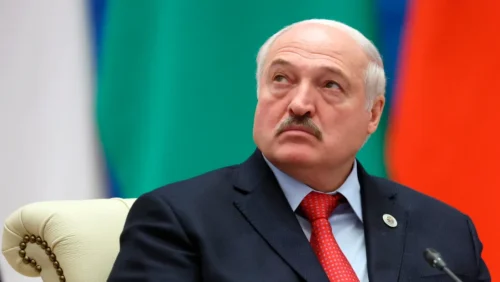
U.S. Helsinki Commission: Recent developments in the South Caucasus revealed a more complex and fluid geopolitical landscape
The U.S. Helsinki Commission Staff issued a report about a “long-term confrontation” with Russia. In the report, a whole section was devoted to the clash of interests of Russia and the U.S. in the South Caucasus, the changing situation and the opportunities and dangers arising from it. The South Caucasus region, which includes Armenia, Azerbaijan and Georgia, is currently facing a turning point in history, on the edge of both opportunity and peril. Situated at the crossroads of Europe, Asia, and the Middle East, the region has long been considered a strategic frontier. Today, the South Caucasus faces new and unprecedented challenges, as Russia seeks to maintain its grip despite the consequences of an extended military quagmire in Ukraine. Weakening of Russian material influence presents new possibilities for regional actors and international stakeholders to realign their interests. However, Moscow remains determined to maintain its influence through both overt and covert means.
Russia’s declining influence is particularly evident in Armenia. Following the 2020 Nagorno-Karabakh War in which Azerbaijan, backed by Turkey, emerged victorious, Armenia has increasingly distanced itself from Moscow, feeling that Moscow abandoned them during the conflict and failed to live up to its treaty obligations as a security guarantor.
An emerging analytical consensus points to Russian support for Azerbaijani military operations, including the secret provision of arms to Azerbaijan through Belarus, a Kremlin satellite regime. As a result, Armenia froze its membership in the Collective Security Treaty Organization (CSTO), signaling a desire for closer ties with the West. At the same time, Armenia has been actively pursuing normalization talks with Turkey, indicating a strategic pivot that could have far-reaching implications for regional stability.
While Baku has aligned itself closely with Turkey, a NATO member, it also maintains an “allied” relationship with Russia. “Azerbaijan’s decision to accept an alliance designation from Russia in 2022—just hours before Russia launched its full scale invasion against Ukraine—appears to reflect a transaction where Azerbaijan essentially surrendered its residual Western moorings in exchange for Russian support for its diminution of Armenia and the consolidation of its regional power,” readds the report. It was also noted that unsurprisingly, Moscow remains determined to maintain its foothold in the South Caucasus through a combination of diplomatic, military, and economic strategies. In Armenia, for example, there are indications that Russia may seek to destabilize the current government, which it perceives as overly pro-Western, by exploiting domestic discontent and fostering political instability.
In light of these shifting geopolitical dynamics, the United States must reassess its approach to the South Caucasus. For decades, U.S. policy has been based on a relatively simple understanding: Armenia was seen as a stalwart Russian ally, Georgia as a committed pro-Western partner, and Azerbaijan as a multi-vector state balancing its relations between the West and Russia. However, recent developments have upended these assumptions, revealing a more complex and fluid geopolitical landscape. Armenia, for instance, has emerged as a potential democratic partner for the United States. This shift represents a unique opportunity for the United States to strengthen its ties with Armenia. Azerbaijan’s recent military actions and its campaign of human rights violations have understandably strained its relations with the West.
One of the key factors influencing the future of the South Caucasus is the outcome of the conflict in Ukraine. A victory for Ukraine would represent a significant blow to Russia’s ability to maintain its influence in its so-called “near abroad,” including the South Caucasus.
The war in Ukraine has already exposed the limits of Russian military power and undermined Moscow’s credibility as a security guarantor for its allies.
As Russia’s influence wanes, there is an opportunity for the West to play a more active role in shaping the future of the South Caucasus. Additionally, the United States should lend more sustained and substantial diplomatic weight to Armenia’s efforts to normalize relations with Turkey, finalize a durable peace with Azerbaijan, reduce regional isolation, and diversify its security and economic partnerships.
Regarding Azerbaijan, the United States should balance diplomacy and pressure by combining criticism of Baku’s human rights record with incentives for cooperation. A balanced approach would allow the United States to maintain its influence in Baku while encouraging positive changes that could contribute to regional stability.


